Learning to Speak Again
How an award-winning UQ Research Center is changing the lives of people with aphasia
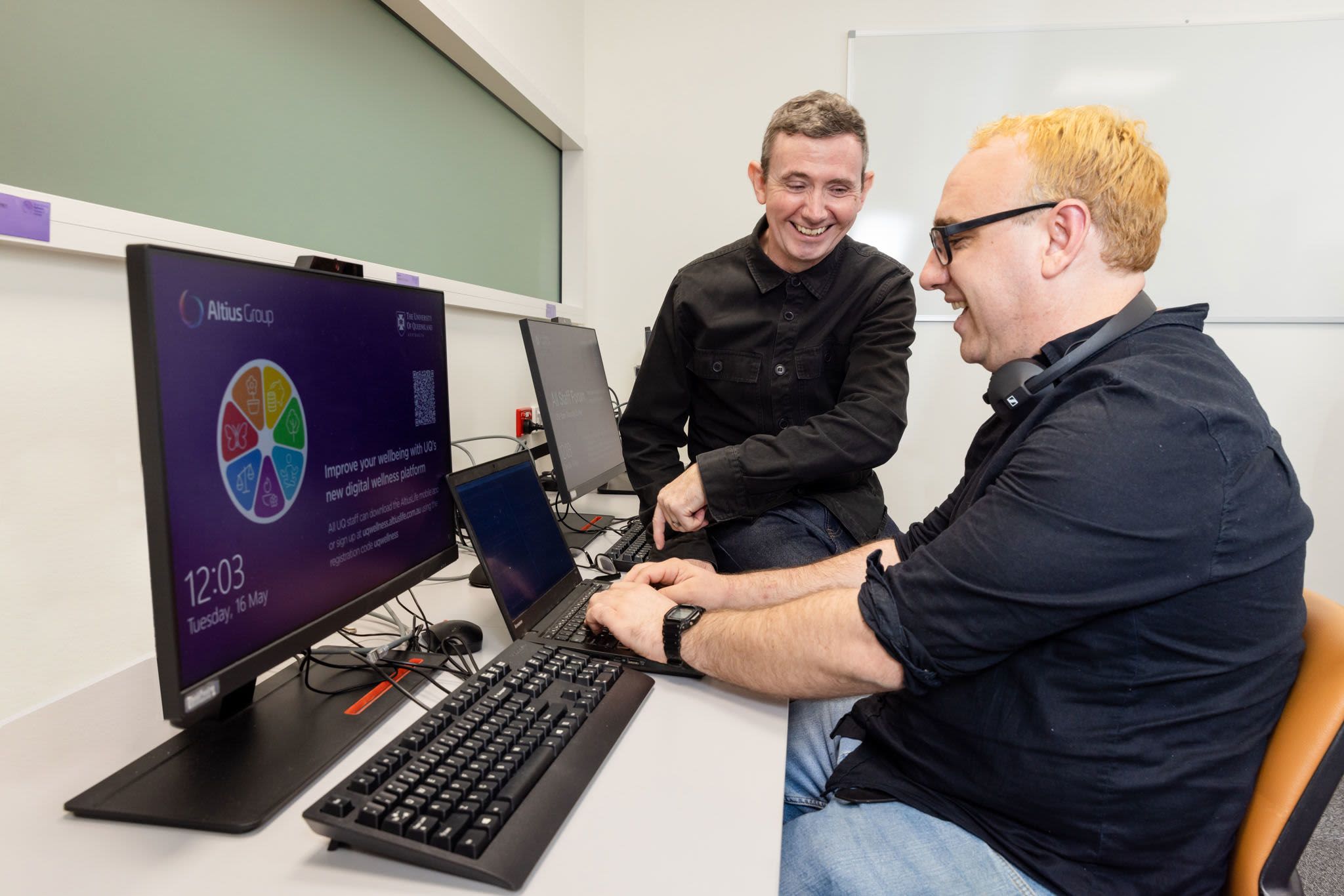
Imagine waking up suddenly one morning with the inability to speak. The words form in your mind like any other day, but they won't come out.
Instead, what replaces them are just sounds or silence as you desperately try to communicate your frightening new reality with your loved ones.
This is life for the more than 15 million people living with aphasia worldwide, including Hollywood superstar Bruce Willis.
Aphasia is a devastating and common language and communication disability that is largely unknown in the community.
It usually occurs suddenly after a stroke or sometimes after a head injury, but can also arise gradually from a brain tumour or dementia that causes progressive, permanent damage in the language networks in the brain.
The sudden loss of language experienced after a stroke impacts the person and their family and friends in a way that is hard to imagine. All of us take communication for granted.
We all occasionally forget a name, experience a slip of the tongue, or simply struggle to understand what we are hearing from time to time. But people with aphasia experience this for large parts of everyday.
This is what makes the work of UQ's Queensland Aphasia Research Centre (QARC) so compelling.
Founded in 2019, the team – led by the center's director Professor David Copland – has developed new treatments, training and resources to improve outcomes for people living with aphasia.
QARC is the result of generous philanthropic funding from the Bowness Family Foundation and an anonymous donor, as well as the support from The University of Queensland. It is located in the Surgical Treatment and Rehabilitation Service (STARS) in Brisbane, and works in partnership with Metro North clinicians as part of the STARS Education and Research Alliance.
One aspect of the team's work is the Comprehensive High-Dose Aphasia Treatment (CHAT) program. It includes 50 hours of intensive therapy delivered over 8 weeks by speech pathologists at STARS Hospital. The team also runs a TeleCHAT program online from those who cannot attend in person.
"The center was developed to address the fact that people with aphasia have many unmet needs and have some of the poorest outcomes in terms of quality of life, of all major health conditions," Professor Copeland said.
"The center is something that Emeritus Professor Linda Worrall and myself and many colleagues have been wanting to create for over 15 years, so it has been wonderful to have this opportunity. This makes us unique in Australia and one of only a handful of research centers dedicated to aphasia in a hospital setting worldwide."
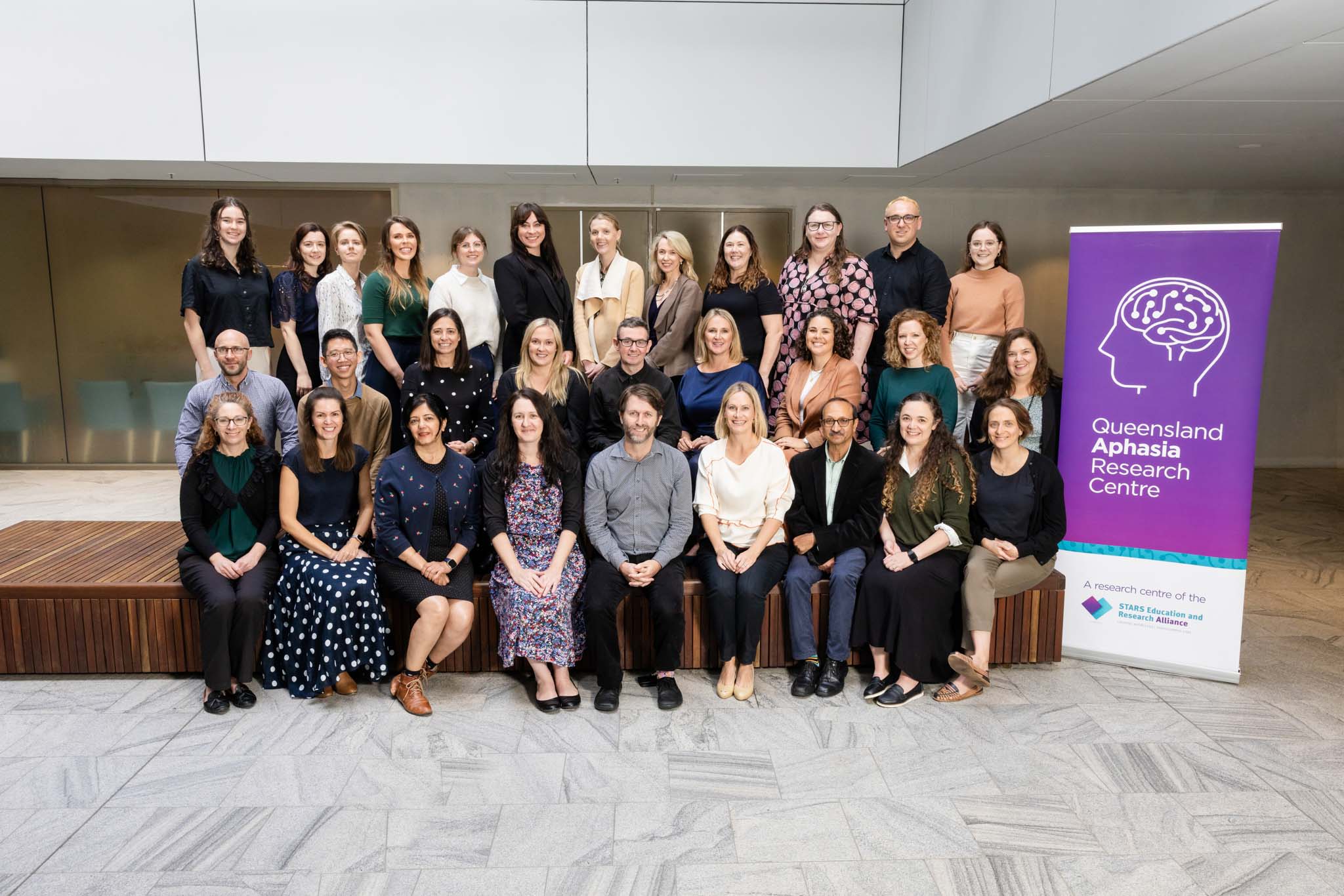
The Queensland Aphasia Research Centre team.
The Queensland Aphasia Research Centre team.
Since 2019, the program has gained national and international acclaim, expanding to 17 sites in:
Queensland
New South Wales
South Australia
Which will use the program from 2025 onwards.
The online TeleCHAT program has also reached a total of 24 people across Australia, along with 1 person in New Zealand.
"The research being done is proving that quality, high-dose, evidence-based aphasia therapy can be given online and received at home," Professor Copeland said.
"The potential for expansion of TeleCHAT has been recognized by the UK-based Tavistock Trust for Aphasia who have recently funded QARC to lead a feasibility project in 2024 to look at how the TeleCHAT program could be expanded."
“The results will provide a blueprint and enable scale-up of the program for more widespread implementation.”
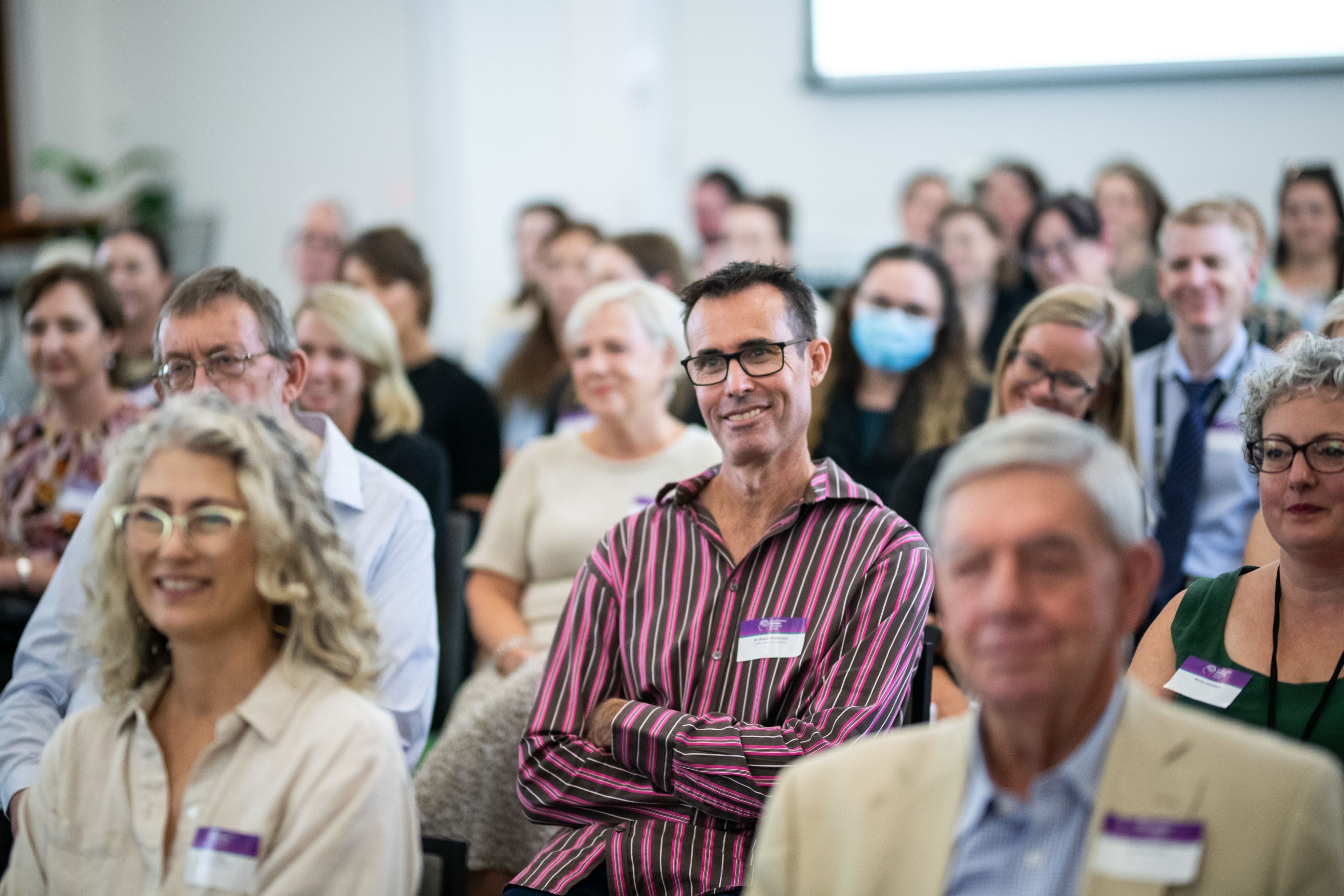
Those with aphasia are not the only people experiencing the benefits of QARC's unique work. The center has also expanded to incorporate others with communication disabilities, including those living with epilepsy, dementia, and adults with brain tumors.
This work is being led by senior QARC researchers Dr Sonia Brownsett and Dr Sarah Wallace.
The QARC Aphasia Tech Hub is a service that facilitates access to technology for people with aphasia and employs them, along with speech pathologists, to help develop resources.
This unique group also provides advice for clinicians and people with aphasia and their families about what evidence-based digital solutions will meet their goals.
The Centre works to bridge the digital divide between those with communication disabilities and those without.
"People living with aphasia have been involved in all stages and aspects of research from the co-development of research ideas through to publication," Professor Copeland said.
"People with aphasia have also driven innovative research solutions; for example, 2 people with aphasia work in a paid capacity on the Aphasia Tech Hub, which focuses on developing aphasia-accessible technology solutions."
This level of support has been life-changing for Kim Barron, who works for the Aphasia Tech Hub, and credits the team for making her feel heard and seen following her diagnosis.
"This really is the only place that I have found where someone proactively listens to me and want to hear the answer," she said.
"This really helps me to feel connected and feel valuable and feel like I'm contributing to society. They'll listen to your ideas and implement them."
It is this sort of partnership and vision that saw the centre honored with the National Health and Medical Research Council 2023 Consumer Engagement Award.
"This award is an incredible honor for all the people living with aphasia, the families and friends, researchers, and clinicians who work together at QARC," Professor Copland said.
"The award recognizes the hard work of all these people. We hope the recognition that this award brings helps to raise awareness of the needs of people with aphasia and the importance of partnering with consumers to understand these needs and work together to find solutions that drive better outcomes."
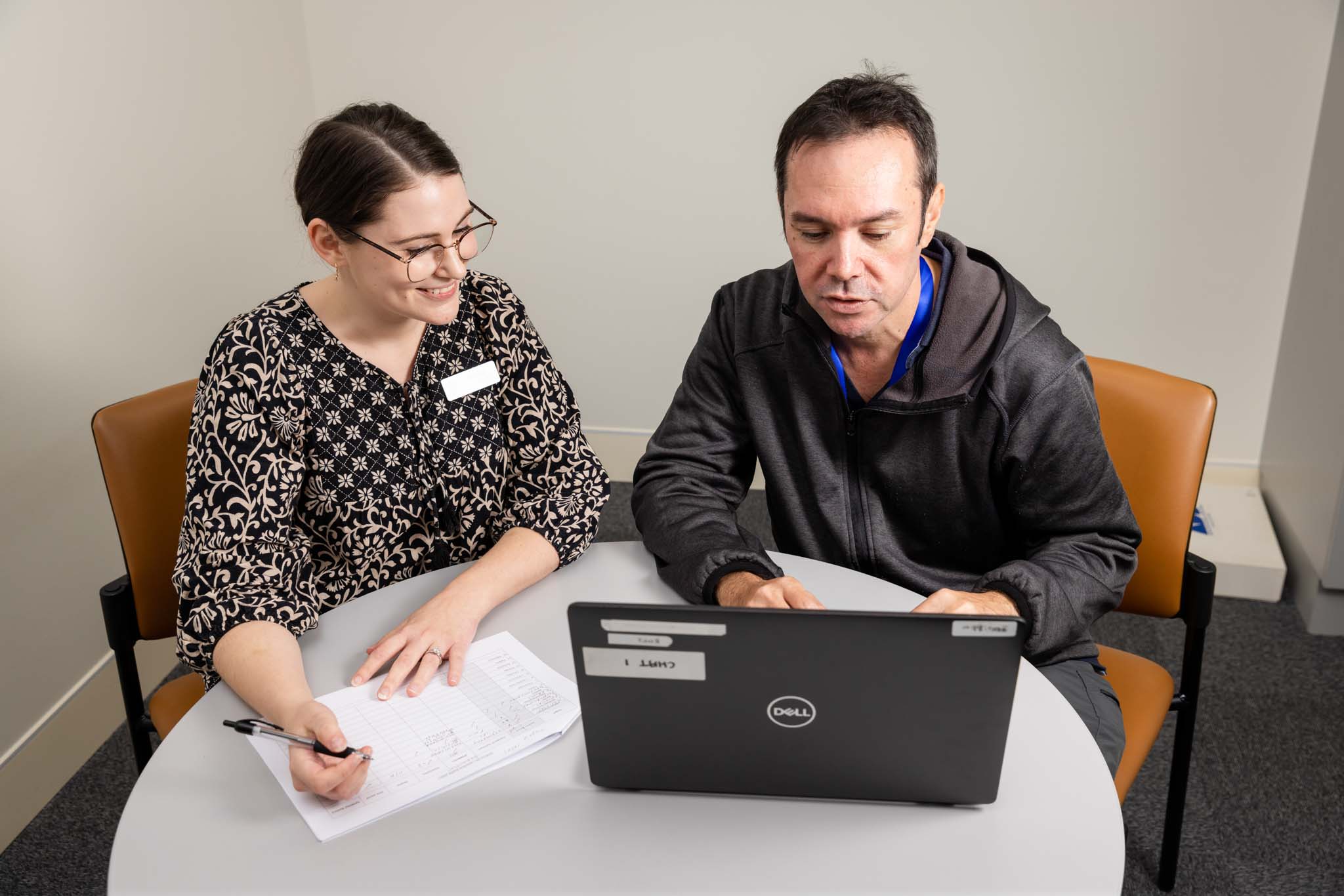
Bruce Aisthorpe, Kim Barron, and others talk about aphasia and the Queensland Aphasia Research Centre.
For the foreseeable future, the team will turn its attention to developing new treatments for aphasia and working out how these can be delivered in a range of different settings across the country.
Importantly, they are also determining how best to measure outcomes of any service or treatment in a way that is meaningful and motivating for all involved.
Among the team's goals for the future is further expansion for the Aphasia Tech Hub, thanks to the generosity of Simon and Christine Campbell, who supported the program in honour of their daughter Jess Campbell.
They also aim to grow the centre to provide support for more people living with communication disabilities, such as those with brain tumors and dementia.
Professor Copland said the team would work on technology to develop new treatment approaches that increase access, can be delivered online, and enable people with aphasia to regain independence and drive their own recovery.
"Our center is also developing resources and supports to help clinicians and people with aphasia make treatment decisions and gain access to the best possible rehabilitation," he said.
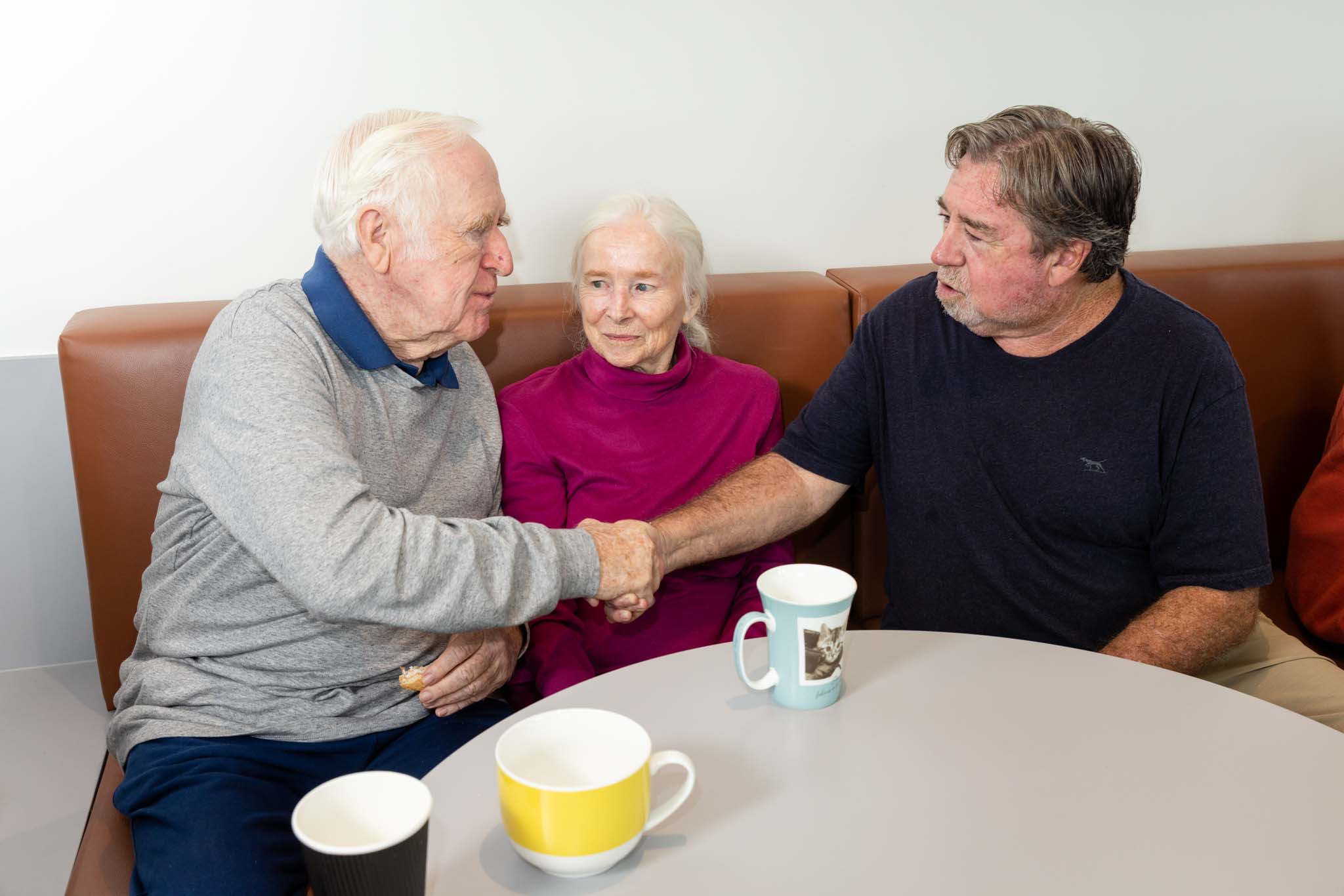
This content was paid for and created by the University of Queensland. The editorial staff of The Chronicle had no role in its preparation. Find out more about paid content.



